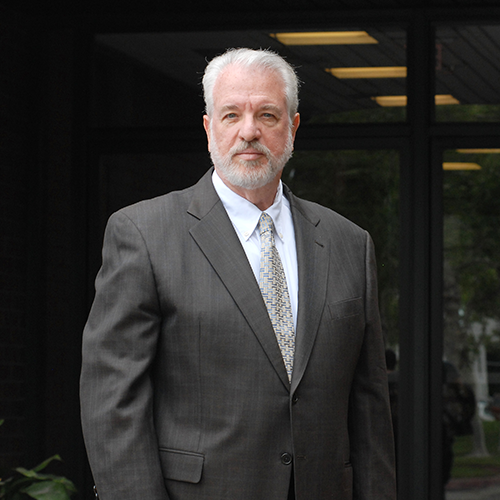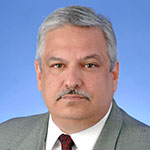
Marisa Brutoco, who began her career with the World Bank, now serves as corporate counsel for Google/YouTube. She sits down with HE to talk about her unusual career path and why she is passionate about leveraging technology and digital media to create meaningful connections.
HE: You started your career right out of college at World Bank. How did you end up there?
I was a major in international relations at Stanford. I worked with an advisor at Stanford, [former US ambassador to Russia] Michael McFaul on democratization and had focused on political and economic development, which led to an internship at the World Bank. While in DC, I spent time working on good governance’s impact on better economic outcomes and studying with Joseph Stiglitz, the World Bank’s chief economist (from 1997 to 2000), who won the Nobel Prize in economics in 2001.
It sounds like engaging and meaningful work. Why didn’t you continue on that path?
Everyone at the World Bank had their master’s degree, PhD, or JD, so I felt I needed go back to school to continue my education. I didn’t want to teach, and I wanted to have different options to continue to work on international issues, so law school seemed like the best choice.
Was it during law school that you interned at the Center for Strategic and International Studies?
Yes. I continued similar work that I had done at the World Bank with a focus on preventive diplomacy, specifically civil wars in energy rich regions, including advising Congress on an oil pipeline in Africa. I knew after that experience that I wanted to practice international law, not just international policy.
After law school, you worked in the Palo Alto/Silicon Valley offices of two firms, which must have put you at the epicenter of some exciting deals. Tell us what that was like.
I wanted to do intellectual property law, since I realized that technology was the quickest and possibly one of the best ways to foster international development. I had always wanted to be on the transactional side of IP, so after a year of doing IP litigation at Dechert, I took a job as an associate in the technology-transactions department at Wilson Sonsini Goodrich & Rosati. I got to work with some of the major high-tech companies in the Valley. I also helped develop our group’s sports digital media practice.
I worked on a startup called Yardbarker, which was a large sports blog network that was acquired by Fox Sports, and a sports digital media investment and consulting business that was co-founded by Ronnie Lott, a former San Francisco 49er, and Issac Vaughn, a former partner at the firm.
Why did you leave Wilson Sonsini?
I had been there just over four years. Apple had been reaching out to me for a while, and I really enjoyed the business aspect of the deals I was working on. So I took a job in-house as corporate counsel for iTunes. I worked on commercial contracts, licensing and distribution agreements for video content. It was a great first in-house job, and I wasn’t planning on leaving so soon, but then I heard about the Google/YouTube position. I thought I’d be able to work on more diverse initiatives and have a broader platform—and still be with a great cutting-edge company. It has proven to be all that and more.
You’ve had the opportunity to do pro bono work on top of all that. What makes you passionate about that type of work?
I have done a lot of pro bono work, focusing on youth development, education, and the arts, advising nonprofits such as Students Rising Above, All Stars Helping Kids, and the San Francisco Museum for Modern Art. I also did IP work for Santa Clara University. Doing this work was a continuation of an interest in pro bono that was sparked at Stanford Law with the Stanford Community Law Clinic and my dedication to public service that began when my father started a national nonprofit when I was younger, Lifesavers Foundation for America. Now I continue that commitment via my board service, including Stanford Law School’s Board of Visitors, Santa Clara University’s Institute for Sports Law and Ethics, and Stanford Athletics’ Board of Directors.
Let’s talk more about your current role. You’ve been with Google/YouTube since August 2010. What projects have you most enjoyed working on?
One of my focus areas continues to be premium sports content. I worked on numerous deals regarding content for YouTube, Google Play, and Google Search’s Onebox with the major sports leagues from the NBA to MLB, college conferences like the Pac-12, networks like Fox Sports, and the US Olympic Committee.
I also focus on live streaming. I handled the deal to live stream the Red Bull Stratos jump, when Felix Baumgartner took a helium balloon twenty-four miles into space, jumped out, and became the first human to break the sound barrier without any form of engine power. The jump was viewed live by over 9.5 million people, the most concurrent views ever on YouTube.
Another exciting project I worked on was the video meeting between the Dalai Lama and Archbishop Desmond Tutu in October 2011. The Dalai Lama wanted to visit the Archbishop for his 80th birthday, but the South African government wouldn’t issue him a visa. So he used live Hangout on Google+, which was using YouTube’s live streaming technology. The video is still available on YouTube.
In addition, I have done deals with Congress and ensured that the White House and State Department are able to use our live streaming functionality. It has been great to see people like my former advisor, Ambassador McFaul, promote the use of social and online media to communicate directly with people and promote diplomacy in a digital era.
Which brings us full circle. Your role with one of the world’s leading technology companies is enabling you to break down barriers and facilitate communication and change in disparate places, which was one of your goals when you worked in international development.
That’s right. Additionally, we have launched our YouTube nonprofit program worldwide, worked with education partners from Coursera to the UC system, and helped various news outlets make their content worldwide and live streamed if they choose to do so. In these cases, we have used our technology to give people access to all types of content, to enable people to learn about different world views, and to be exposed to the ideas of influential leaders as well as people like themselves. It’s an honor and a challenge to try to make things like that happen.

